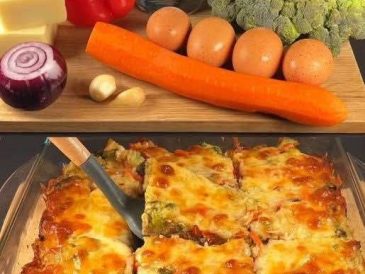In today’s world, the benefits of consuming fresh fruits and vegetables are undeniable. Rich in essential nutrients, vitamins, and fiber, they are a crucial part of any healthy diet. However, the way these foods are grown and treated often raises concerns, particularly when it comes to pesticide use. Most fruits and vegetables today are sprayed with chemicals to protect them from pests and enhance their shelf life. While these pesticides are generally considered safe for human consumption in small quantities, the cumulative effect of consuming them regularly is still a topic of debate. This is where a simple yet effective solution comes into play: baking soda. Recent research has shown that baking soda can eliminate up to 96% of the pesticide residues on fruits and vegetables, making it an accessible, eco-friendly way to make our food cleaner and safer.
The Problem of Pesticides on Produce
Pesticides are chemicals used to protect crops from insects, fungi, weeds, and other pests. While they help ensure a higher yield and reduce crop loss, pesticides also remain on the surface of the produce, even after it reaches your local supermarket. When fruits and vegetables are not washed thoroughly before being consumed, these pesticides can enter the body, leading to potential health risks over time.
The problem is particularly concerning when it comes to conventionally grown produce, which often contains traces of these chemicals, sometimes in higher quantities than organic produce. According to the Environmental Working Group (EWG), a non-profit organization focused on environmental health, many fruits and vegetables tested for pesticide residues exceed safe limits. Apples, strawberries, grapes, and spinach, for example, are among the highest in pesticide content. The EWG’s “Dirty Dozen” list, which includes these fruits and vegetables, highlights the importance of washing produce before consumption.
While some people choose organic options to avoid pesticides, these can often be more expensive. Moreover, not everyone has access to organic produce, especially in certain regions where it may not be widely available. So, what can consumers do to reduce the risk of pesticide exposure without spending extra money or making drastic changes to their eating habits?
Baking Soda: The Unsung Hero in Your Kitchen
Baking soda, also known as sodium bicarbonate, is a versatile and eco-friendly product found in most households. From being used as a cleaning agent to serving as an ingredient in baking, its uses are endless. But one of the lesser-known benefits of baking soda is its ability to effectively remove pesticides from fruits and vegetables.
The key lies in the chemical properties of baking soda. When mixed with water, baking soda creates a mildly alkaline solution, which can break down and neutralize pesticides. Unlike traditional washing methods, such as rinsing with water alone, baking soda has the ability to penetrate the porous surface of the produce and remove pesticide residues more effectively.
Research on Baking Soda and Pesticide Removal
In a study conducted by researchers at the University of Massachusetts, the effectiveness of baking soda in removing pesticides was tested. The research focused on three common types of pesticides used on apples: thiabendazole, phosmet, and diphenylamine. The results were startling: soaking apples in a solution of baking soda and water for 12-15 minutes removed up to 96% of pesticide residues.
In comparison, simply rinsing the apples with tap water or using commercial produce washes was far less effective. The study concluded that using a baking soda solution for washing fruits and vegetables could significantly reduce pesticide exposure without the need for harsh chemicals or expensive organic produce.
This research is not isolated. Numerous studies have corroborated the effectiveness of baking soda in pesticide removal. Another study published in the Food Control Journal also demonstrated that baking soda could remove pesticides such as chlorpyrifos, a common insecticide. The study found that a 10-minute soak in a baking soda solution removed 80-90% of pesticide residues from the surface of leafy greens.
How to Use Baking Soda to Clean Your Produce
Using baking soda to remove pesticides from your fruits and vegetables is simple and inexpensive. Here’s how you can do it:
- Prepare the Solution: In a large bowl, fill it with water and add one teaspoon of baking soda for every two cups of water. Stir the solution to dissolve the baking soda completely.
- Soak the Produce: Submerge your fruits or vegetables in the baking soda solution. For best results, let the produce soak for 12-15 minutes. This is especially effective for firm-skinned produce such as apples, cucumbers, and peppers.
- Scrub (Optional): For produce with thicker or rough skins, such as potatoes or carrots, you may want to use a soft brush to scrub the surface while it’s soaking in the solution. This helps dislodge any pesticide residues that may be stuck to the surface.
- Rinse Thoroughly: After soaking, rinse the produce thoroughly under cold running water to remove any remaining baking soda solution and loosened pesticides.
- Dry and Enjoy: Once the produce is rinsed, dry it with a clean cloth or paper towel before consumption. Your fruits and vegetables are now cleaner and safer to eat.
This method can be used on a wide variety of fruits and vegetables, including apples, grapes, strawberries, tomatoes, cucumbers, spinach, and leafy greens. While it may not remove pesticides that have been absorbed deeper into the produce, it is highly effective at cleaning the surface residues that are most common.
The Benefits of Using Baking Soda for Pesticide Removal
- Cost-Effective: Baking soda is inexpensive and widely available. It’s a much cheaper alternative to specialty produce washes, which can cost significantly more.
- Non-Toxic and Safe: Unlike chemical pesticide removers, baking soda is non-toxic and safe for both humans and the environment. It provides a natural, chemical-free way to clean your produce without worrying about introducing additional chemicals into your diet.
- Environmentally Friendly: Baking soda is an eco-friendly solution. It is biodegradable and has minimal environmental impact compared to synthetic pesticide removers. This makes it a great choice for those looking to live more sustainably.
- Simple and Effective: The method is quick and straightforward, and it can be done with items you already have in your kitchen. There’s no need for complicated equipment or expensive ingredients.
- Reduces Pesticide Exposure: The most obvious benefit is the reduction in pesticide exposure. By removing up to 96% of pesticide residues, baking soda provides a simple way to reduce the risk of harmful chemical ingestion.
Additional Tips for Reducing Pesticide Exposure
While baking soda is a great tool for removing pesticides, there are other strategies you can use to reduce your pesticide exposure and make healthier choices:
- Peel Skin When Possible: For fruits like cucumbers, apples, and potatoes, peeling the skin can further reduce pesticide residues. However, keep in mind that this may also remove some of the nutritional content, especially fiber, found in the skin.
- Buy Organic When You Can: Organic produce is grown without synthetic pesticides and fertilizers, making it a safer choice. While organic fruits and vegetables can be more expensive, they are worth considering, especially for produce that is high in pesticide residues.
- Wash and Scrub Thoroughly: In addition to using baking soda, scrub fruits and vegetables with a soft brush to further remove residues. This is particularly helpful for produce with rough or waxy skins.
- Grow Your Own: If you have the space and resources, growing your own fruits and vegetables can help you avoid pesticides altogether. Organic gardening practices ensure that your produce is free from harmful chemicals.
Conclusion
Baking soda is an incredibly effective and affordable solution to reducing pesticide residues on fruits and vegetables. With research showing that it can eliminate up to 96% of pesticides, it offers a simple, eco-friendly, and cost-effective way to clean your produce. By soaking your fruits and vegetables in a baking soda solution, you can enjoy your meals with greater peace of mind, knowing that you’ve taken an extra step to remove harmful chemicals from your food. In addition to its effectiveness, baking soda is safe, non-toxic, and widely accessible, making it a must-have in every kitchen. So the next time you pick up some fresh produce, remember to give it a good wash with baking soda and take one more step toward a healthier lifestyle.





